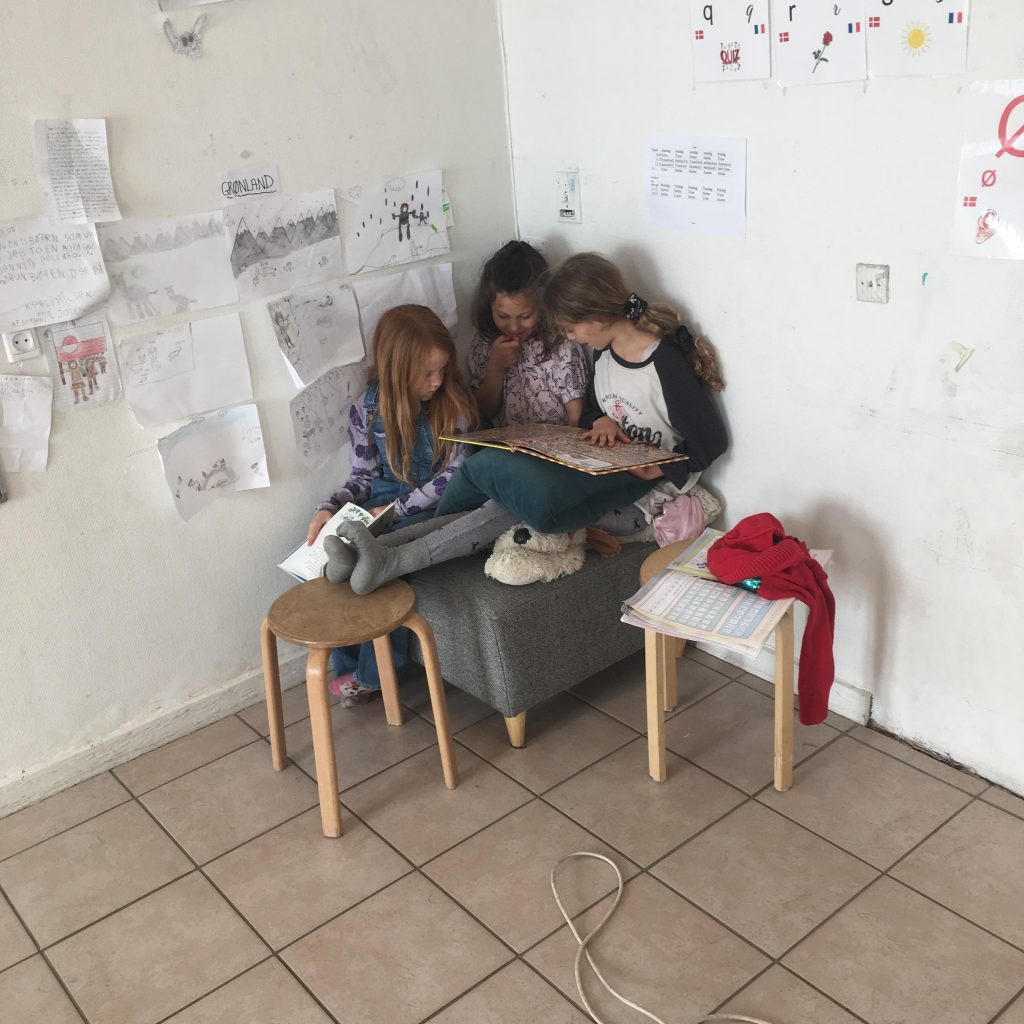A quick guide to the daily schedule at school. Because your kids think this is natural and aren’t going to tell you anything.

There will be more in-depth information and discussion about the different points in the schedule later.
09:00 – 09:15 Morning assembly: As you all know, we start our days with a réunion du matin at 9 o’clock. A child chairs the meeting, they learn to get -and keep – the attention of a large group. We start with chanting together “en, to, tre, god morgen un, deux, trois bonjour”. We give short and important messages about what’s going on this particular day, and round it off with a song.
0915 – 1100: Work hours: After the assembly, the kids amble (mostly) peacefully to the classrooms. They pick up their books and get to work. The calm and determination is quite a magical sight. This is not something I would have thought possible, judging from my experience in other (entirely fine and adequate) schools. The teachers then ambulate, helping the ones who are stuck and paying attention to the ones who are off track. The children choose what subjects to work on, and assign themselves a quota for how much they need to do before they can ask to go to recess. Most kids reach their goals some time around or after 09:45. They ask the teacher to look over their work, and may then go, and come back at 10:15. Some kids are so engrossed in what they’re doing, they choose to forego free time and continue through the second work hour, 10:15 – 11:00.
Look, not every child is super diligent all the time. They’re children, and they have different personalities. But most set themselves goals that are reasonable while not being too easy. They do talk (in voices at library level) to their friends but don’t fool around endlessly, despite not being strictly supervised. When they have mistakes, they don’t get to leave until they’ve corrected their work.
We don’t point out every single spelling mistake, though. Getting significant volume and speed in writing and reading is more valuable than getting everything right at age six. (Insert snide and disrespectful comment here about French and Danish spelling conventions.)
11:30 Lunch
12:00 Outdoors. The kids can go back in after 12:30.
12:30 (voluntary starting point) – 13:15 Reading hour. The students read books or comics. Again, not a common sight at other schools. Just a bunch of kids shutting up and reading. As the HUM guy here I have some issues about certain students reading below their level and have some plans, but come on. Most kids today never get peace and quiet to read on a daily basis.
13:15 – 15:00 Project hours. Starts with a roll call, and a short update about various projects. Sometimes (especially Wednesdays) there are presentations. The rest of the time is spent working on one’s project.
13:15 – 15:00 on Fridays: Conseil. This is the kids’ own agora, or town hall meeting. They get to evaluate the week and air various issues. This is also where we update our tickets.
Classes and lectures: Capsules, subject-specific classes (including music on Thursdays), are held at various points during work hours and project hours. These are voluntary, as the group’s diversity in age and kinds of competence is so high. Some children might go through phases where they are only interested in one or two subjects, but for the most part this seems to regulate itself over time. Their projects are normally structured in a way that incorporates many different subject areas. Having to write coherently and correctly when presenting a scientific project,e.g, and using historical or cultural references.